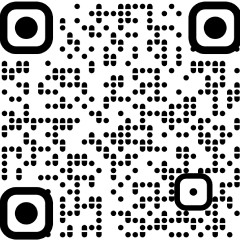Education
Google Invests $1 Billion in AI Education Initiatives Across US Universities, ETTelecom
Alphabet’s Google on Wednesday announced a three-year, $1 billion commitment to provide artificial intelligence training and tools to US higher education institutions and nonprofits.
More than 100 universities have signed on to the initiative so far, including some of the nation’s largest public university systems such as Texas A&M and the University of North Carolina.
Participating schools may receive cash funding and resources, such as cloud computing credits towards AI training for students as well as research on AI-related topics.
The billion-dollar figure also includes the value of paid AI tools, such as an advanced version of the Gemini chatbot, which Google will give to college students for free. Google hopes to expand the program to every accredited nonprofit college in the US and is discussing similar plans in other countries, senior vice president James Manyika said in an interview.
He declined to specify how much Google is earmarking in direct funds to external institutions relative to footing its own cloud and subscription bills. The announcement comes as rivals like OpenAI, Anthropic and Amazon have made similar pushes around AI in education as the technology pervades society. Microsoft in July pledged $4 billion to bolster AI in education globally.
By evangelising their products to students, tech firms further stand to win business deals once those users enter the workforce.
A growing body of research has mapped concerns around AI’s role in education, from enabling cheating to eroding critical thinking, prompting some schools to consider bans. Manyika said Google had not faced resistance from administrators since it began to plot its education initiative earlier this year, but “many more questions” about AI-related concerns remain.
“We’re hoping to learn together with these institutions about how best to use these tools,” he said, adding that the insights could help shape future product decisions.
Education
FIORENTINO: STATE SYSTEM WILL TACKLE AI EDUCATION

In his new blog, State System of Higher Education Chancellor Christopher Fiorentino highlights an agreement signed with Google last week “to help students develop the AI competencies they will need in their future careers.” Writing that the State System can’t fool itself into thinking artificial intelligence is a “trend” or a “passing fancy,” Fiorentino pledges to enter the future with “eyes wide open.” He says perhaps the best contribution the state-owned universities can make is to ensure graduates know “what AI tools they should be prepared to use” as they start their careers.
The agreement to expand the State System’s partnership with Google includes IUP, Cheyney, East Stroudsburg, PennWest, and Millersville..
THE CHANCELLOR’S BLOG:
https://chancellorfiorentino.blogspot.com/2025/09/ai-is-not-fad.html
.
Education
AI in healthcare education: The future of learning explained

Artificial Intelligence (AI) is no longer just a tool for diagnostics; it is transforming the way healthcare professionals learn, train, and prepare for real-world practice. From medical students to practicing clinicians, AI-powered platforms are redefining education with immersive simulations, adaptive learning, and real-time feedback. Industry leaders weigh in on how AI is shaping the future of medical training.
AI AS A PERSONALISED LEARNING COMPANION
According to Ankit Modi, Founding Member & Chief Product Officer at Qure.ai,
“Artificial Intelligence is redefining healthcare education by enabling immersive, data-driven, and personalised learning experiences. AI-powered tools like virtual simulations, adaptive learning platforms, and predictive analytics are bridging the gap between theoretical knowledge and real-world clinical skills.”
He highlights that AI allows students to practice procedures in safe, simulated environments while improving decision-making and knowledge retention.
MAKING CLINICAL TRAINING IMMERSIVE AND ACCESSIBLE
Mr. Tejasvi Rao Veerapalli, CEO of Apollo Hospitals, Hyderabad, stresses the role of AI in scaling high-quality training:
“AI is revolutionising healthcare education by making clinical training more immersive, personalised, and efficient. Through intelligent simulation tools, real-time feedback, and adaptive learning platforms, students and professionals can now build skills in risk-free environments that mirror real-world scenarios.”
He adds that AI ensures deeper knowledge retention and bridges gaps in training access and expertise.
AI AS A MENTOR FOR FUTURE CLINICIANS
For Jeevan Kasara, Director & CEO of Steris Healthcare, AI is evolving beyond diagnostics to act as a learning mentor:
“Artificial Intelligence is revolutionising healthcare education, evolving from a diagnostic aid to a personalised mentor for future clinicians. Virtual patients strengthen diagnostic reasoning, adaptive assessment tailors learning to individual needs, and natural language tools make information instantly accessible.”
He emphasises that this transformation equips professionals with sharper skills, long-term retention, and empathetic patient care.
MOVING BEYOND TEXTBOOKS TO DYNAMIC LEARNING
Rustom Lawyer, Co-Founder and CEO of Augnito, sees AI as a bridge between static theory and interactive practice:
“Artificial Intelligence is ushering in a new era for healthcare education, firmly bridging the gap between theory and practice. By offering realistic simulations, personalised learning experiences, and real-time feedback, these technologies empower students and professionals to develop skills with greater confidence and accuracy.”
He notes that this shift accelerates training while making knowledge retention stronger and more practical.
THE FUTURE OF MEDICAL EDUCATION WITH AI
Across perspectives, one theme stands out: AI is not just a technological upgrade, but a pedagogical revolution. It makes education:
-
More immersive through simulations.
-
More personalised with adaptive learning.
-
More impactful with real-time feedback and recall.
By tailoring education to individual needs while keeping pace with advancing medicine, AI ensures the next generation of healthcare professionals are better equipped, more confident, and more empathetic from day one.
– Ends
Education
How to use ChatGPT at university without cheating: ‘Now it’s more like a study partner’ | University guide

For many students, ChatGPT has become as standard a tool as a notebook or a calculator.
Whether it’s tidying up grammar, organising revision notes, or generating flashcards, AI is fast becoming a go-to companion in university life. But as campuses scramble to keep pace with the technology, a line is being quietly drawn. Using it to understand? Fine. Using it to write your assignments? Not allowed.
According to a recent report from the Higher Education Policy Institute, almost 92% of students are now using generative AI in some form, a jump from 66% the previous year.
“Honestly, everyone is using it,” says Magan Chin, a master’s student in technology policy at Cambridge, who shares her favourite AI study hacks on TikTok, where tips range from chat-based study sessions to clever note-sifting prompts.
“It’s evolved. At first, people saw ChatGPT as cheating and [thought] that it was damaging our critical thinking skills. But now, it’s more like a study partner and a conversational tool to help us improve.”
It has even picked up a nickname: “People just call it ‘Chat’,” she says.
Used wisely, it can be a powerful self-study tool. Chin recommends giving it class notes and asking it to generate practice exam questions.
“You can have a verbal conversation like you would with a professor and you can interact with it,” she points out, adding that it can also make diagrams and summarise difficult topics.
Jayna Devani, the international education lead at ChatGPT’s US-based developer, OpenAI, recommends this kind of interaction. “You can upload course slides and ask for multiple-choice questions,” she says. “It helps you break down complex tasks into key steps and clarify concepts.”
Still, there is a risk of overreliance. Chin and her peers practise what they call the “pushback method”.
“When ChatGPT gives you an answer, think about what someone else might say in response,” she says. “Use it as an alternative perspective, but remember it’s just one voice among many.” She recommends asking how others might approach this differently.
That kind of positive use is often welcomed by universities. But academic communities are grappling with the issue of AI misuse and many lecturers have expressed grave concerns about the impact on the university experience.
Graham Wynn, pro-vice-chancellor for education at Northumbria University, says using it to support and structure assessments is permitted, but students should not rely on the knowledge and content of AI. “Students can quickly find themselves running into trouble with hallucinations, made-up references and fictitious content.”
Northumbria, like many universities, has AI detectors in place and can flag submissions where there is potential overreliance. At University of the Arts London (UAL) students are required to keep a log of their AI use to situate it in their individual creative process.
As with most emerging technologies, things are moving quickly. The AI tools students are using today are already common in the workplaces they will be entering tomorrow. But university is not just about the result, it is about the process and the message from educators is clear: let AI assist your learning, not replace it.
“AI literacy is a core skill for students,” says a UAL spokesperson, before adding: “Approach it with both curiosity and awareness.”
-

 Business2 weeks ago
Business2 weeks agoThe Guardian view on Trump and the Fed: independence is no substitute for accountability | Editorial
-
Tools & Platforms1 month ago
Building Trust in Military AI Starts with Opening the Black Box – War on the Rocks
-

 Ethics & Policy2 months ago
Ethics & Policy2 months agoSDAIA Supports Saudi Arabia’s Leadership in Shaping Global AI Ethics, Policy, and Research – وكالة الأنباء السعودية
-

 Events & Conferences4 months ago
Events & Conferences4 months agoJourney to 1000 models: Scaling Instagram’s recommendation system
-

 Jobs & Careers3 months ago
Jobs & Careers3 months agoMumbai-based Perplexity Alternative Has 60k+ Users Without Funding
-

 Podcasts & Talks2 months ago
Podcasts & Talks2 months agoHappy 4th of July! 🎆 Made with Veo 3 in Gemini
-

 Education2 months ago
Education2 months agoVEX Robotics launches AI-powered classroom robotics system
-

 Education2 months ago
Education2 months agoMacron says UK and France have duty to tackle illegal migration ‘with humanity, solidarity and firmness’ – UK politics live | Politics
-

 Podcasts & Talks2 months ago
Podcasts & Talks2 months agoOpenAI 🤝 @teamganassi
-

 Funding & Business3 months ago
Funding & Business3 months agoKayak and Expedia race to build AI travel agents that turn social posts into itineraries










